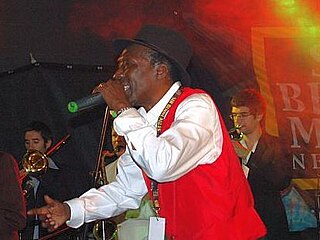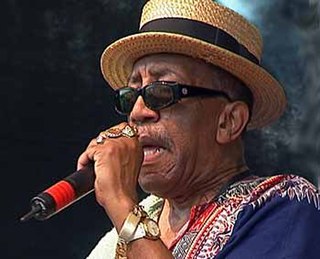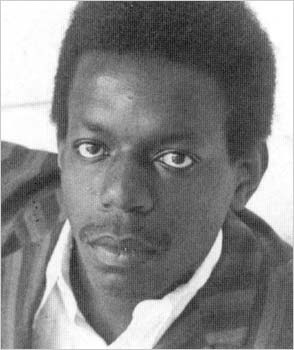Related Research Articles
Arthur "Duke" Reid CD was a Jamaican record producer, DJ and label owner.

Alton Nehemiah Ellis was a Jamaican singer-songwriter. One of the innovators of rocksteady, he was given the informal title "Godfather of Rocksteady". In 2006, he was inducted into the International Reggae And World Music Awards Hall Of Fame.
Delroy George Wilson CD was a Jamaican ska, rocksteady and reggae singer. Wilson is often regarded as Jamaica's first child star, having first found success as a teenager. His youngest son, Karl "Konan" Wilson, has found success as part of British duo Krept and Konan.

Kenneth George Boothe OD is a Jamaican vocalist known for his distinctive vibrato and timbre. Boothe achieved an international reputation as one of Jamaica's finest vocalists through a series of crossover hits that appealed to both reggae fans and mainstream audiences.

Leslie Kong was a Jamaican reggae producer.
Joe Gibbs born Joel Arthur Gibson was a Jamaican reggae producer.

Lorenzo "Laurel" Aitken was a Cuban-Jamaican singer and one of the pioneers of ska music. He is often referred to as the "Godfather of Ska".
Nerlynn Taitt was a guitarist born in San Fernando, Trinidad and Tobago, who later moved to Jamaica and became a pioneer of rocksteady music.

The Ethiopians were one of Jamaica's best-loved harmony groups during the late ska, rocksteady and early reggae periods. Responsible for a significant number of hits between the mid-1960s and early 1970s, the group was also one of the first Jamaican acts to perform widely in Britain.
Clancy Eccles was a Jamaican ska and reggae singer, songwriter, arranger, promoter, record producer and talent scout. Known mostly for his early reggae works, he brought a political dimension to this music. His house band was known as The Dynamites.
Derrick Morgan OD is a Jamaican musical artist who was popular in the 1960s and 1970s. He worked with Desmond Dekker, Bob Marley, and Jimmy Cliff in the rhythm and blues and ska genres, and he also performed rocksteady and skinhead reggae.
The Melodians are a rocksteady band formed in the Greenwich Town area of Kingston, Jamaica, in 1963, by Tony Brevett, Brent Dowe and Trevor McNaughton. Renford Cogle assisted with writing and arranging material.

Slim Smith was a ska, rocksteady and reggae singer. In their book Reggae: The Rough Guide (1997), Steve Barrow and Peter Dalton described Smith as "the greatest vocalist to emerge in the rocksteady era".
Derrick Clifton Harriott OD is a Jamaican singer and record producer. He was a member of the Jiving Juniors with Herman Sang before embarking on a solo career. He has produced recordings by Big Youth, Chariot Riders, The Chosen Few, Dennis Brown, The Ethiopians, Keith & Tex, The Kingstonians, Rudy Mills, Scotty, Sly & Revolutionaries, and Winston McAnuff.
John Kenneth Holt OD was a Jamaican reggae singer who first found fame as a member of The Paragons, before establishing himself as a solo artist.
The Pioneers are a Jamaican reggae, soul and rocksteady vocal trio, whose main period of success was in the 1960s. The trio has had different line-ups, and still occasionally performs.

Pama Records is a British record label active during the 1960s and 1970s. Initially focused on soul music, it became one of the major outlets for reggae in the UK.
Dave Barker is a reggae and rocksteady singer who has made a string of solo albums along with recordings as a member of The Techniques and as half of the duo Dave and Ansell Collins.
Hopeton Lewis was a Jamaican born singer of rocksteady and reggae, an arranger, and radio music presenter.
Gladstone Anderson, also known by his nickname "Gladdy", was a Jamaican pianist, keyboard player, and singer, who played a major part in the island's musical history, playing a key role in defining the ska sound and the rocksteady beat, and playing on hundreds of recordings as a session musician, a solo artist, and as leader of Gladdy's All Stars, featuring bassist Jackie Jackson, drummer Winston Grennan, guitarist Hux Brown, and keyboardist Winston Wright. As Harry J All Stars the band had a massive hit in Jamaica and United Kingdom with the instrumental song "The Liquidator" 1969. Anderson's work was consistently popular in the late 70s too, as roots reggae, dub and sound system culture increasingly prioritised more conscious and deeply spiritual concerns.
References
- 1 2 3 4 Larkin, Colin (1998) "The Virgin Encyclopedia of Reggae", Virgin Books, ISBN 0-7535-0242-9
- 1 2 3 4 5 6 7 8 Eder, Bruce "Owen Gray Biography", Allmusic , Macrovision Corporation
- 1 2 Barrow, Steve & Dalton, Peter (2004) The Rough Guide to Reggae, 3rd edn., Rough Guides, ISBN 1-84353-329-4
- ↑ Thompson, Dave (2002) "Reggae & Caribbean Music", Backbeat Books, ISBN 0-87930-655-6
- ↑ Tapir's Reggae Discographies - HAWK 7"S
- ↑ Music Metason - ArtistInfo, Owen Gray, This Is Reggae / Reggae Dub
- ↑ Tighten Up!: The History of Reggae in the UK, Michael De Koningh, Marc Griffiths · 2003 - PAGE 248 Name: Hawk
- ↑ BM Black Music & Jazz Review, April 81 Voll 3 Issue 12 - Publisher R.W. Daniell - Page 17 HAWK vs HAWK, Frances Taylor meets RAM, TAM & JO.
- ↑ Music Week, November 10, 1979 - Page 47 DISCS, RAM & TAM New Single "WILL YOU STILL LOVE ME TOMORROW" in the reggae charts at no. 32